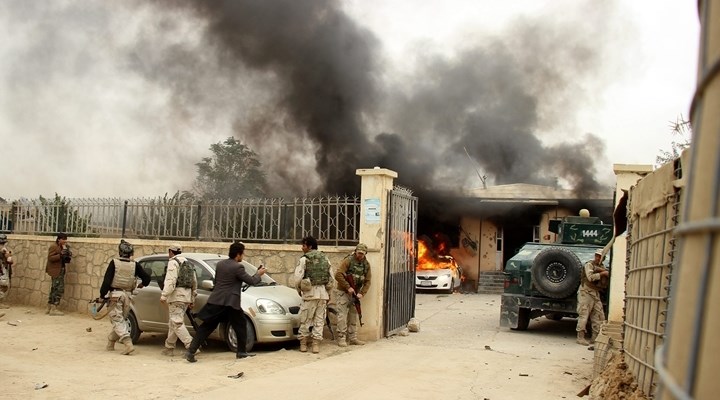Taliban Capture Key City Kunduz As Afghan Forces Retreat
Taliban capture Kunduz city

NEW DELHI: The Afghan Taliban, in a major development, have captured the important city of Kunduz in northern Afghanistan. The fighters took hold of the city on Monday, just a few hours after advancing into the area as the government’s forces fully retreated to the city’s outlying airport.
Afghan officials vowed to fight back, moving commando forces by air and road to Kunduz. By Monday night, however, the Afghan Taliban’s white flag was seen over prominent buildings in Kunduz. The Taliban issued a statement in victory, saying that the group had “no intention of” looting or carrying out extrajudicial killings. “Mujahedeen are not thinking of harassing or deriding anyone but have intentions of respecting and bringing serenity to their lives,” the statement said. “Mujahedeen are not thinking about retribution but have come with a message of peace.” The militants also said that hundreds of prisoners had been freed from the city’s jail.
A video from the scene shows groups of people gathered around Taliban fighters, joining them in a chant with “Death to Mir Alam! Death to Nabi Gechi!” as a response to “Death to America! Death to the slaves of America!”. Mir Alam and Nabi Gechi are local militia fighters on the side of the government.
The fall of Kunduz comes just a year after NATO formally ended its mission in Afghanistan, although US led and supported troops continue to remain in the war torn country. It also comes as reports circulate that the US -- which had committed to ending its engagement in Afghanistan -- is reviewing new drawdown options that include keeping thousands of American troops in the country beyond the end of 2016.
The options presented by international commander in Afghanistan, U.S. Army Gen. John Campbell to the Pentagon and NATO for the future of US troop involvement in Afghanistan are: keeping the current U.S. presence at or near 10,000; reducing it slightly to 8,000; cutting the force roughly in half; and continuing with current plans to draw down to a force of several hundred troops by the end of 2016.
With the capture of Kunduz that comes just ahead of Gen. Campbell’s return to the US to testify before Congress on the course of the war and what America’s continued involvement should be, it is likely that the current plan to cut forces to several hundred troops will have the least favour.
It is also worth noting that shortage of troops was not in any way a contributing factor to the fall of Kunduz. Local reports indicate that about 7000 Afghan troops were present in the city at the time of the advance, with the Taliban fighters numbering a small 500. “The problem wasn’t lack of security forces,” a district governor who had retreated to the airport, Zalmai Farooqi, told the New York Times, adding that “there was no good leadership to command these men.”
Further, the fall of Kunduz should also not come as a major surprise -- as local officials have been sounding the alarm for over a year about the insurgents’ advance into the area. Mohammad Yousuf Ayoubi, the head of the Kunduz provincial council, said that no major government offensive or reinforcement of the city had been taken up recently, even though it was clear the Taliban had been massing at the city’s gates for months, according to The New York Times. “The central government is neglecting Kunduz and its people,” the Times quotes Ayoubi saying. The local officials are incompetent, which is a major reason for the presence of the Taliban.”
At the time of writing, a counter attack was underway with Afghan forces having arrived at the city. In the early hours of Tuesday, the US military conducted airstrikes at Kunduz.
The capture of Kunduz comes as violence sees an upswing in Afghanistan, with a recent UN report noting that the war in Afghanistan is killing or wounding increasing numbers of civilians, with women and children showing the sharpest rise in casualties. Figures for the first six months of 2015 put the year on the path to become the worst year yet in Afghanistan in terms of casualties.
It also comes as a nascent peace dialogue hits a roadblock, following the death of Taliban leader Mullah Omar. As the Taliban confirmed the news, the dialogue process was postponed, with reports indicating that the news had deeply fissured the already heterogenous Taliban. In the weeks that have followed, the side that has opposed talks and negotiations with the government seems to have swelled, with the Taliban stepping up the violence. The fall of Kunduz will further strengthen the factions within the Taliban that want to push through with the insurgency.



